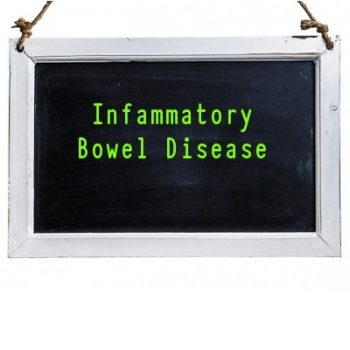Also referred to as IBD, dogs with this disease have common symptoms although not all dogs will experience the gamut of them. Diarrhea, mucus in the stool, a sheath that looks like a sausage casing around the stool, vomiting, weight loss, noisy tummy sounds, refusal of food, hiding after eating…basically, a lot of obvious signals that the gastrointestinal tract is in bad shape and the dog feels poorly.
Most cases of IBD include food allergy which is why changing the diet to one or two foods (fresh foods, not commerciall diets) the dog has never consumed before usually works very well. An allergic reaction includes inflammation and when the gut is inflamed, permeability often results.
The permeable gut has been called leaky gut syndrome because it can allow intact protein molecules to ‘leak’ through the mucosal barrier and when this happens, a new allergy is born. The body needs to be exposed to the allergen at least twice before it will react, although cross reactivity between foods can make it seem as if the dog ingested something just once and reacted right away. Poultry, for example, can cause this. It’s a little-known fact that’s been proven years ago and you can read one of the many reports here.
Since inflammation is present and we know that intact protein molecules can seep through, thereby creating new allergies, the worst thing you can do is feed a variety of foods from the start. This is the perfect set-up for problems down the road if not right away. Yet, there are websites that offer dog diets which include exactly this for dogs with IBD. Some of the meats are high in fat (gastrointestinal diseases demand a low-fat diet) and most of the diets are unbalanced, but even we ignore all that (we shouldn’t!), the fact that owners with dogs suffering from IBD are actually being encouraged to feed multiple protein sources shows that people offering such a diet to the public lack basic understanding of the disease process and nutrient metabolism at minimum.
What I get upset about is not that the science behind these diets is lacking so much as that dogs suffer. How do I know? Because I’ve received four consultation requests over the last three days and all of them have come to me due to following these so-called recipes. Sometimes we get what we pay for, and sometimes the dogs pay a much bigger price, so be careful what you believe and even more careful about what you feed a dog with a gastrointestinal disease. As an aside, blood tests to identify food allergies give such poor results that most vets won’t even run those tests and certainly, an internal medicine vet usually scoffs at the idea. It’s a waste of money most of the time, so save your cash for novel foods and get your dog on the right track.

